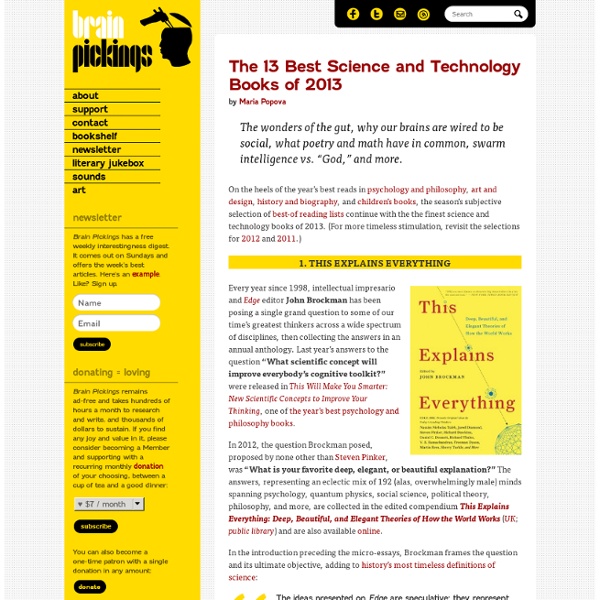The 13 Best Science and Technology Books of 2013

6 Free Online Resources for Primary Source Documents
The Common Core Learning Standards describe the importance of teaching students how to comprehend informational text. They are asked to read closely, make inferences, cite evidence, analyze arguments and interpret words and phrases as they are used in a text. Primary source documents are artifacts created by individuals during a particular period in history. This could be a letter, speech, photograph or journal entry. If you're looking to integrate social studies into your literacy block, try out one of these resources for primary source documents. 1. The National Archives is a fantastic resource. 2. Also run by the National Archives, DocsTeach is full of activities for educators. 3. Spartacus Educational is a great resource for global history. 4. Fordham University is another good resource for global history. 5. Broken down by time period then listed in alphabetical order, the Avalon Project at Yale University also has primary sources for global history teachers. 6. Easy iPad Access
Education Update:The Class Who Kicked the Hornet's Nest: Teaching "Controversial" Topics in Social Studies:The Class Who Kicked the Hornet's Nest
February 2014 | Volume 56 | Number 2 The Class Who Kicked the Hornet's Nest: Teaching "Controversial" Topics in Social Studies Pages 1-4-6 Teaching "Controversial" Topics in Social Studies Rather than shy away from controversy in the classroom, teachers draw on edgy topics as an authentic opportunity to practice the critical thinking and social-emotional skills needed to debate sensitive issues. The phrase "ripped from the headlines" is often used to hook viewers into a TV show, but in the classroom, are similar topics off limits? Truth and Consequences "Any time you tell the full-circle truth on a topic, that automatically makes it controversial," says Beth Sanders, a 10th and 11th grade American history teacher at Tarrant High School in Birmingham, Ala.
Related:
Related:



